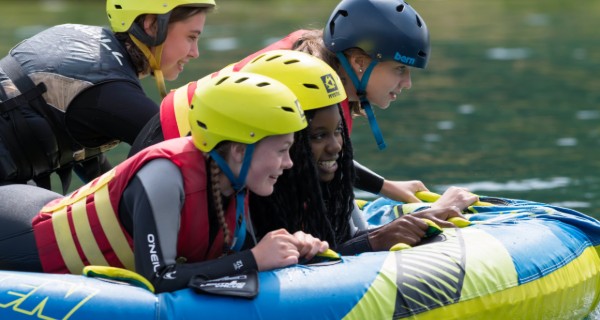by Graham Goulden
When your child comes home with a story about someone being mean to their friend in the playground what is your response? For most of us there are two immediate reactions – thank goodness they weren’t being mean to my child and what a relief that my child wasn’t the one being mean. Then we go back to cooking their tea, safe in the knowledge that as parents we are doing a good job. But is that enough or is there more we should be doing to help our children stand up for their friends at school?
Stepping into challenging situations can be pretty daunting, whether you’re a child or an adult. Fear and not knowing what to do are the main reasons people don’t intervene and that’s where I come in. As a former police officer I have spent years looking at the role of bystanders and I want to share how we can empower children to actively stand up for others when they see behaviour they don’t agree with.
Now, before you think I’m simply transferring responsibility for bad behaviour onto the shoulders of small children or inciting them to step into dangerous situations, I want to be clear that my main aim is to ‘Build the Team’ by showing children that most of their friends will have the same reaction to challenging situations as they do. Be reassured this doesn’t mean encouraging children to place themselves in danger. I tell children that if the situation feels scary their primary responsibility is to keep themselves safe. Not stepping in at the time, if it feels like the situation could escalate, is often the correct reaction. After the incident, when things are calmer this can be a good time to speak to someone else, like a teacher or parent.
We all want our children to grow into good citizens who will speak out when they see people being unkind. This behaviour needs to be instilled from a young age which is why I held a workshop for ESMS Junior School parents this week to give them a set of tools they can use to help their children stand up for their friends and speak out when they see behaviour they don’t agree with. For those of you who couldn’t attend, here are some handy tips for you to use when talking to your child:
1. Directly: be that friend. If your friend is being treated unkindly, check they are okay, ask them what they would like you to do to help.If it is your friend that is the one being unkind tell them that you don’t think their behaviour is okay and remind them that they could get into trouble
2. Indirectly: distraction. Change the subject to try and get a friend out of a tricky situation.Then later find a time to get your friend on their own and tell them that you didn’t like the way they behaved
3. Seek help from your friends. Ask your friends what they think about the behaviour and what you should do
4. Tell someone. Tell your teacher, your parents or an older sibling what you have seen and ask them for advice
5. Keep yourself safe. Your own safety is your primary responsibility so if the situation feels scary then support your friend by going to find a teacher or telling a parent when you get home.
Most importantly, in the coming weeks, if your child comes home and tells you about a situation where children were being mean to another child, I want you to acknowledge this. Acknowledge that they have acted. Acknowledge that they are being a good friend. Together, figure out what to do next because we all have a role in supporting our young people in their relationships.
Graham Goulden is a former Chief Inspector with the Scottish Violence Reduction Unit. He is a passionate advocate of the bystander approach and its use in schools, universities, sports teams and workplaces to address problematic behaviours. He runs workshops at ESMS for children and parents to encourage children to stand up for their friends.
See www.grahamgoulden.com for further information.



